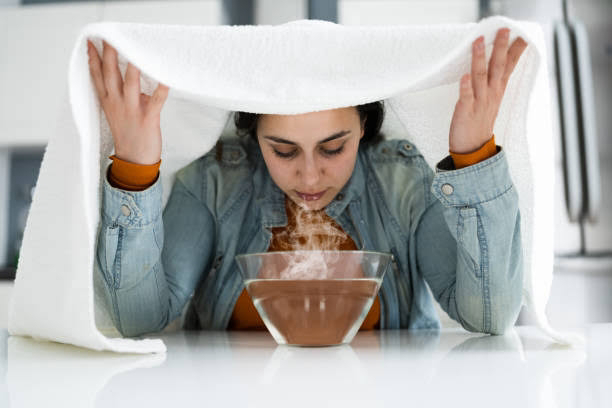The Undefeated: Discovering the Healing Power of Aparajita In the world of Ayurveda, names are rarely accidental. Take Aparajita ( Clitoria ternatea ), for example. In Sanskrit, it literally means “The Undefeated.” It was named by ancient sages who believed that when this herb is used correctly, disease simply cannot win. You might know it by other names— Vishnukanta , Vishnupriya , or Ashwakhura (so named because the flower resembles a horse’s hoof). But regardless of what you call it, its reputation for resilience is legendary. A Quick Guide to Aparajita Remedies If you have an Aparajita plant in your garden, you have a natural pharmacy at your fingertips. Here is how it can be used for common ailments: 1. For Migraines and Headaches Method A: Extract the juice from the root and apply 3–4 drops into each nostril. Method B: Grind the root into a fine paste with a little water and apply it directly to the forehead for cooling relief. 2. For Persistent or Chronic Fevers Ayurveda of...
1. Get the Shot: The flu shot is like a superhero's protection against the virus. It's a quick and simple approach to keep healthy during the flu season. Simply roll up your sleeve and you're good to go!
2. Stay Clean: Germs can be tricky little things, but cleaning your hands with soap and water will send them fleeing. It is especially crucial after coughing, sneezing, or touching objects in public locations.
3. Cover Up: Imagine your cough or sneeze as a secret agent—cover it up! Use a tissue or your elbow to capture the germs and prevent them from spreading to others.
4. Stay Home if Sick: Visualize your body as a castle, with the flu as an unwelcome guest. If you believe the flu has penetrated your defenses, it is better to stay at home and relax. This prevents you from passing the flu to your friends, family, and coworkers.
5. Rest and Drink: When you're fighting the flu, consider it a struggle that your body must win. Resting offers your body the energy it needs to fight against infections, and drinking enough of fluids helps flush them out.
6. Medicine Can Help: Even superheroes require a sidekick. Over-the-counter medications can relieve flu symptoms such as fever, cough, and sore throat. Simply follow the instructions on the label.
7. Ask for Help: If the flu has you feeling down for the count, don't be afraid to call in reinforcements. Your doctor might offer further assistance and instruction to get you back on your feet.
Remember, dealing with the flu entails taking care of yourself and people around you. With these simple steps, you'll be able to navigate flu season like a master!
Here are some basic medications and home treatments for treating the flu:
1. Over-the-counter pain relievers and fever reducers: Acetaminophen (Tylenol) and ibuprofen (Advil, Motrin) can help lower fevers, relieve body pains, and lessen headaches.
2. Cough syrup: Look for a cough syrup with dextromethorphan to assist control coughing and soothe throat discomfort.
3. Decongestants: Nasal decongestants such as pseudoephedrine (Sudafed) and phenylephrine (Sudafed PE) might alleviate nasal congestion and sinus pressure.
4. Expectorants: These release mucus and make coughing easier, which helps to remove congestion. Look for guaifenesin-containing goods.
5. Antihistamines: These medications can help relieve symptoms such as sneezing, runny nose, and itchy eyes. Common medications include loratadine (Claritin), cetirizine (Zyrtec), and diphenhydramine.
As for the home remedies:
1. Stay hydrated: Stay hydrated by drinking plenty of fluids like water, herbal tea, clear broth, or electrolyte drinks, which will help loosen mucus.
2. Rest: Give your body the rest it requires to battle the flu. Take it easy, get enough sleep, and avoid overexertion.
3. Warm salt gargle: Gargling with warm salt water might help relieve sore throats and inflammation.
4. Steam inhalation: Breathing in steam from a bowl of hot water or taking a hot shower will help ease congestion and remove mucus.
5. Honey and lemon: Combine honey and lemon in warm water or tea to relieve a sore throat and alleviate coughing.
These basic medications and home cures can alleviate flu symptoms and allow you to recover more comfortably at home. However, if your symptoms worsen or persist, you should seek medical attention.













Comments
Post a Comment